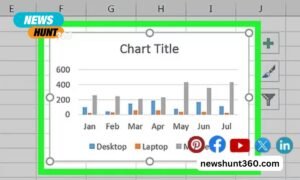Every business owner wants to make sure they do everything possible to optimize their sales and minimize expenses. Understanding the economic nexus can be a challenge for sales tax. Every state has different laws and regulations regarding what constitute an economic nexus, and it can be challenging to keep track of them all. In this blog post, we will discuss five ways that you can tackle common economic nexus challenges!
Contents
Understand The Basics Of Economic Nexus
Economic nexus is the minimum level of economic activity that a business must have in a state before it is required to collect and remit sales tax. The concept is premised on the notion that businesses with a significant economic presence in a state derive enough benefit from the state’s economy to warrant paying taxes. Each state has its definition of economic nexus, but some general characteristics are common to most states’ definitions.
First, economic nexus usually requires a certain amount of sales within the state. Second, it often requires a certain number of transactions conducted within the state. Finally, it typically requires a certain amount of property or employees to be located within the state.
A professional sales tax management company like TaxConnex can help your business determine whether or not it has an economic nexus in a particular state.
Know Your State’s Requirements For Economic Nexus
Each state has different requirements for economic nexus, so it is vital to know the specific needs of the conditions in which your business operates. To find out your state’s requirements, you can check with your state’s department of revenue or consult with a tax professional.
Some states have enacted laws that establish an economic nexus for out-of-state businesses, even if those businesses do not have a physical presence in the state. These laws are often referred to as “click-through” or “affiliate” nexus laws. Under these laws, an out-of-state business may be required to collect and remit sales tax if it agrees with a state resident under which the resident agrees to refer customers to the out-of-state company.
Keep Up With Changes To Economic Nexus Laws
Economic nexus laws constantly change, so it is crucial to keep up with the latest changes. You can do this by subscribing to a sales tax newsletter or checking the website of your state’s department of revenue regularly. Tax professionals like TaxConnex can also be an excellent resource for keeping up with changes to economic nexus laws.
Stay Organized And Keep Track Of Sales And Transactions
If your business has an economic nexus in a state, it is essential to stay organized and keep track of your sales and transactions. This information will determine how much sales tax you owe to the state. The best way to stay organized is to use sales tax software like TaxConnex. This type of software can help you manage your sales tax obligations and keep track of your transactions.
Consult With An Accountant Or Tax Professional For Help And Advice
Suppose you have trouble understanding the economic nexus or keeping up with the latest changes. In that case, you may want to consult with an accountant or tax professional for help and advice. They can answer any questions you have and help you ensure that your business complies with the law.
Final Thoughts
While economic nexus can be a challenge, there are ways to tackle it. By understanding the basics of economic nexus, knowing your state’s requirements, keeping up with changes to the laws, staying organized and keeping track of your sales and transactions, and consulting with a tax professional when needed, you can ensure that your business complies with the law.




